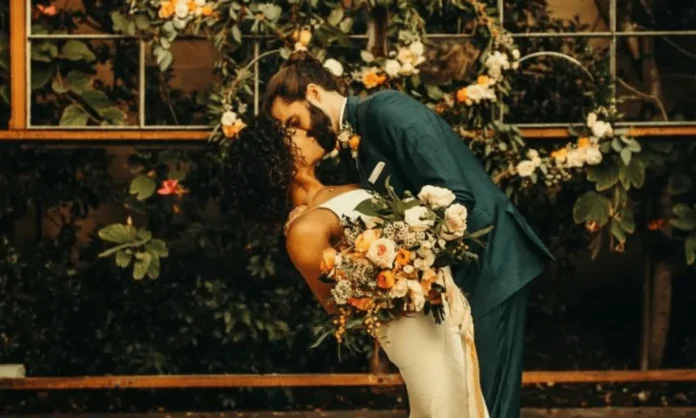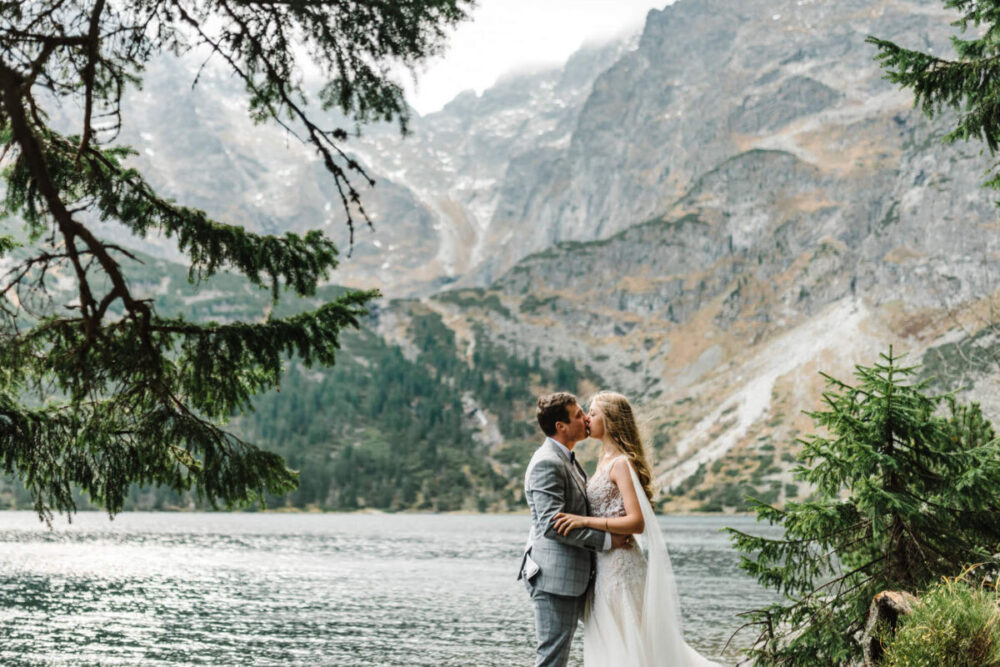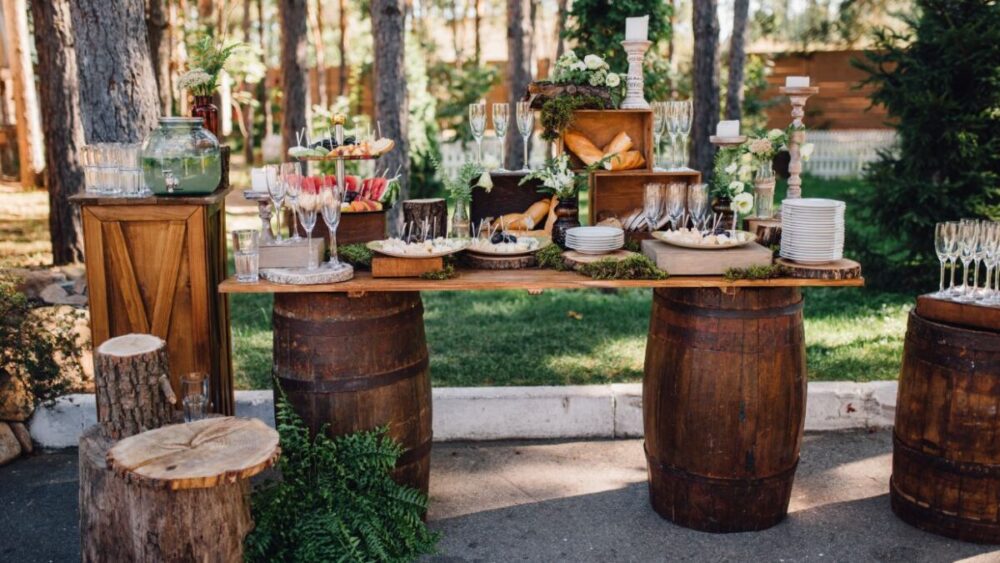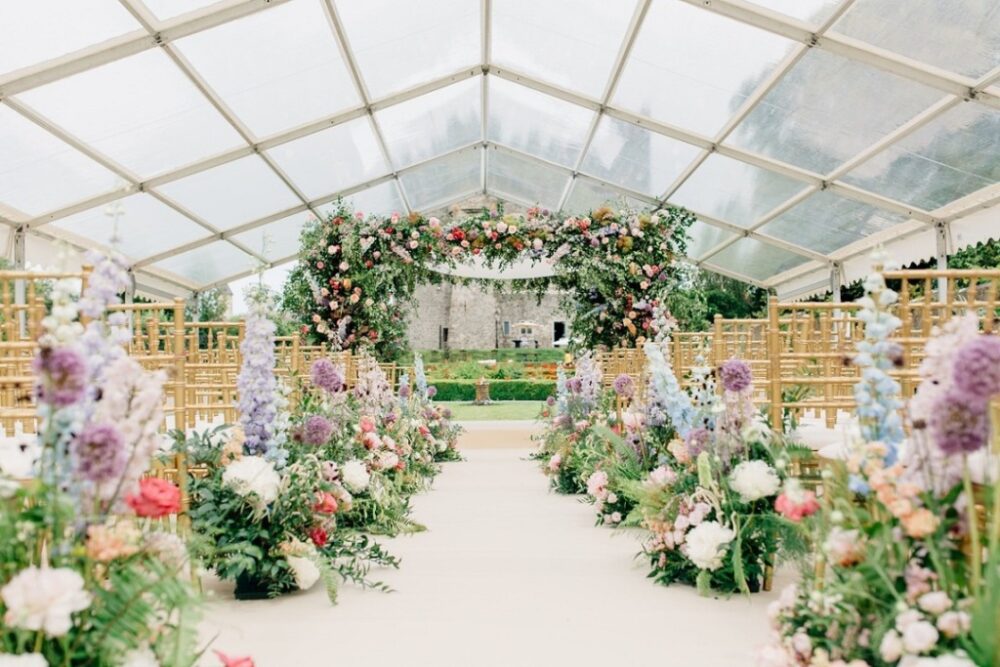
Weddings are magical occasions, brimming with joy and celebration. But amidst the flowers, the food, and the fancy attire, have you ever paused to consider the environmental impact of your special day?
The good news is, making your wedding eco-friendly doesn’t mean sacrificing style or sentiment. Here’s how you can host a memorable, sustainable celebration that reflects your commitment not just to each other, but also to the planet.
Choose a Naturally Beautiful Venue

Selecting the right venue can dramatically reduce the environmental footprint of your wedding. Opt for locations that take advantage of natural beauty, such as botanical gardens, beaches, or even a family member’s backyard.
These places often require fewer decorations and take full advantage of natural lighting, reducing electricity usage. Plus, hosting both your ceremony and reception at the same place can cut down on transportation emissions, as guests won’t need to travel between locations.
Send Sustainable Invitations
As we keep up with tech trends in wedding planning, it’s easier than ever to reduce waste in the wedding planning process. For your invitations, consider using recycled paper or, for a completely tree-free option, materials like seed paper, which guests can later plant in their gardens.
If you’re comfortable going digital, electronic invitations are another fantastic way to minimize waste. They’re not only eco-friendly but also allow for easier RSVP management and updates, ensuring a smooth communication flow with your guests.
Embrace Farm-to-Table Catering

What’s a celebration without sumptuous food? Embracing a farm-to-table catering approach can make your wedding feast sustainable and incredibly fresh. Source your food from local farmers and vendors to lower the carbon footprint often associated with long-distance food transport.
This not only supports the local economy but also guarantees your guests the freshest and tastiest dishes. Discuss with your caterer about seasonal menu options, which are more likely to be locally produced and thus more sustainable.
Not only does this offer a culinary experience tied closely to the locale and season, but it also significantly cuts down on the environmental costs of importing non-seasonal food.
Rethink Your Floral Decor

Flowers are often a focal point of lavish wedding decor. However, traditional floral arrangements in wedding planning can be costly and wasteful, especially if they’re only used for one day. A greener alternative is using silk flowers for your floral arrangements. Wedding aesthetics don’t have to suffer when you opt for these reusable beauties.
Silk flowers can look stunningly realistic, offering a sustainable charm without the short lifespan of real blooms. You can either purchase them to keep as a keepsake or rent them from companies that offer stylish options. After the celebration, these flowers can adorn your home or be returned, ensuring they continue to bring joy well beyond your wedding day.
Plan a Zero-Waste Reception
Achieving a zero-waste reception is a bold step towards a truly sustainable wedding. Focus on minimizing disposables: choose cloth napkins and real dishes instead of single-use plastics. Decorate with items that you can reuse or that have a life after the wedding, such as potted plants or decorations made from recycled materials.
Consider a recycling station where guests can sort their waste, and compost organic waste like food scraps. For favors, think of gifts that will be used and appreciated, like small potted plants or homemade jams in reusable jars. Every detail counts towards reducing the environmental impact of your big day.
Opt for Eco-friendly Attire

Finally, consider the environmental impact of what you and your wedding party wear. Choose wedding attire made from sustainable fabrics, such as organic cotton, bamboo, or recycled materials. Consider renting gowns and suits to reduce the demand for new clothes, which in turn decreases textile waste.
For those sentimental about purchasing a dress, look into options for donating or repurposing the dress after the wedding. This could mean altering the dress into a cocktail outfit or donating it to a charity that provides attire for those in need.
Planning an eco-friendly wedding is not just about making one big decision; it’s about making many small ones that add up to a significant positive impact on the environment. From the venue to the favors, you can make bold choices that lead to a more sustainable celebration.
Remember, your wedding is a reflection of your values and love for each other—let it also reflect your care for the world around you. By choosing to plan a wedding that respects the environment, you set a powerful example for your guests and create a legacy of mindfulness and responsibility that goes well beyond your special day.








